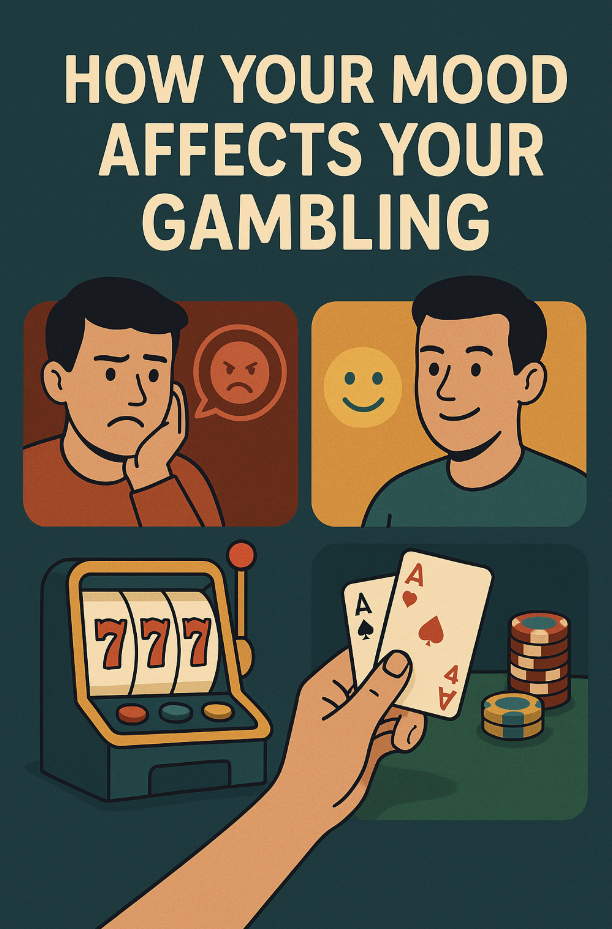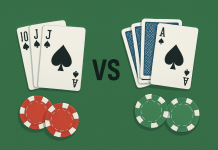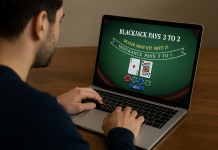How Your Mood Affects Your Gambling (And How to Play Smartly)
Your mood affects your gambling. Gambling is just as much a psychological experience as it is about luck and numbers. How you feel when you place a bet or spin the reels can heavily influence your decisions, sometimes for the better, sometimes for the worse.
Whether you’re playing video poker, betting on sports, or trying your hand at real money online slots, this blog explores how emotions shape your behaviour when gambling on these types of games and pastimes. It’ll also delve into why mood shifts can lead to risky choices and what steps you can take to stay in control.
The Psychology Behind Gambling
Gambling activates the brain’s reward system. When you win, it triggers a release of dopamine, a chemical linked to pleasure and motivation. That rush is part of what makes gambling so appealing. But losing has an effect, too. It can trigger frustration, stress, or a strong urge to win back what’s been lost.
Your emotional state also affects how you interpret risk and probability. Feeling upbeat can lead to overconfidence, while feeling down can lead to desperation. Understanding these emotional drivers is key to managing how you play.
How Your Mood Affects Your Gambling

To understand how your mood affects your gambling, keep in mind that both positive and negative moods influence your decisions. Your mood can affect your gambling when you’re feeling upbeat, but also when you’re feeling low or bored.
When You’re Feeling Upbeat
A positive mood can make gambling more enjoyable, but it also comes with some risks. People in high spirits often feel more confident in their choices. This can lead to larger bets, faster play, or a belief that they’re “on a roll.”
How to play smart: Stick to your plan. Set your budget before you start and don’t increase it because things are going well. If you’re already having a good day, there’s no need to risk changing that.
When You’re Feeling Low
Sadness, anxiety, anger, or stress can turn gambling into a way to cope or escape. These emotional states make it easier to justify bigger bets or longer sessions. The idea that one good win will turn things around is especially tempting when you’re already feeling overwhelmed.
Studies show that people who are upset tend to take greater risks and are more likely to ignore the long-term consequences. This often leads to poor decision-making and financial regret.
How to play smart: If you’re using gambling to feel better or distract yourself, stop. Take a break, talk to someone, or do something that genuinely helps you reset. Gambling should never become a way to deal with emotional pain.
When You’re Feeling Bored
Boredom may not feel extreme, but it has a powerful effect on gambling habits. Playing out of boredom, especially online, makes it easy to lose track of time and money. Many platforms are designed to keep you engaged, so you might find yourself playing for much longer than you planned.
How to play smart: Keep gambling as something you choose to do for fun, not something you fall into. If you’re bored, look for other activities that bring you energy or connection.

Recognising Risky Patterns
A common sign that emotions are affecting your gambling is the urge to chase losses. When a bet doesn’t go your way, it’s tempting to place another to try and win it back. This cycle is often driven by frustration rather than logic.
There is no guarantee that the next bet will be any different from the last. The more emotional your response, the more likely you are to act impulsively.
How to play smart: Set limits that include time and money. If you feel pressure to recover what you’ve lost, that’s the moment to walk away. Cooling off now will save you more than just cash.
Creating a Safer Gambling Routine
Mood shifts are part of life, and they’re going to happen. What matters is how you manage your gambling habits around them. Here are a few tips to keep your gameplay balanced and in check:
- Use time limits: setting limits will help you to know when to stop, even if you’re winning
- Track your spending: staying aware of your habits helps you better manage your bankroll..
- Take breaks regularly: take time to check in with how you’re feeling.
- Avoid gambling when tired, stressed, or emotional: these states reduce good judgment
- Talk to someone: if you’re worried your gambling is becoming hard to control, don’t be afraid to seek help.
Most importantly, know that gambling should feel fun. It should never feel like a way to solve problems, change your mood, or make up for a rough day.
When to Seek Help
Everyone can experience emotional triggers when gambling, but if you find yourself relying on it for comfort, distraction, or hope, it might be time to reach out for support. Many people suffer in silence when it comes to gambling addiction. Know that there’s absolutely no shame in asking for help.
Organizations like GamCare, Gambling Therapy, and others offer confidential support, free resources, and professional guidance.
Wrapping Up
Whether you realize it or not, your emotional state shapes the choices you make in gambling. Staying aware of how you’re feeling and using simple tools to set boundaries will enable you to keep gambling in its place, as something that’s light, social, and entertaining.
Playing smart means knowing yourself. That starts with checking your mood before you place your next bet. Gamble safe, gamble smart!




